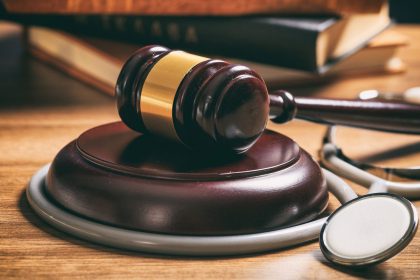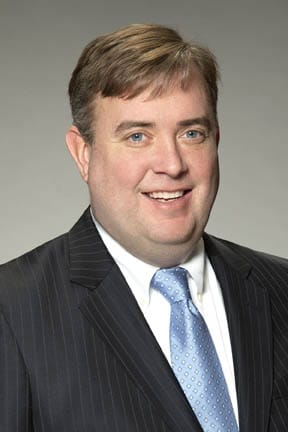
Medical errors are a leading cause of wrongful death in the United States. Studies report that as many as 200,000 patients die each year from medical malpractice. Indeed, one member of the medical profession has described medical errors as “rampant” within the medical community.
Doctors can only provide medical care to patients in a hospital, if the hospital determines that the doctor has the necessary training and experience. In each case, the hospital must decide whether to grant “privileges” to the doctor, a process called “credentialing.” In Delaware, hospitals can be held liable for the negligent credentialing of a doctor, who causes wrongful death or serious personal injury to a patient in the hospital. See Sadler v. Nanticoke Memorial Hospital (Delaware Superior Court 2012) and Armstrong v. A.I. DuPont Hospital for Children, 60 A.3d 414 (2012)
Hospital Accreditation and the Joint Commission
In general, hospitals in the United States must be approved by the Joint Commission on Accreditation of Healthcare Organizations (JACHO) in order to be licensed and operate. Founded in 1951, the Joint Commission seeks to continuously improve health care by evaluating hospitals and providing resources and standards to assist them in providing safe and effective medical treatment for the public. The Joint Commission evaluates and accredits more than 22,000 health care organizations and programs in the United States. https://www.jointcommission.org/accreditation-and-certification/health-care-settings/hospital/ The Joint Commission issues policies and procedures for the accreditation of hospitals, and they are available to the public. For a history of the Joint Commission see: https://www.jointcommission.org/-/media/tjc/documents/about-us/tjc-history-timeline-through-2019-pdf.pdf.
Credentialing of Medical Staff at Hospitals
According to the Joint Commission, one of the most important responsibilities of a hospital is deciding whether a doctor is competent to provide quality patient care. The purpose is to ensure that doctors providing care to a hospital’s patients are qualified and competent.
What is credentialing? It is the process of obtaining, verifying, and assessing the qualifications of a doctor to provide care or services in or for a hospital. Credentials are documented evidence of licensure, education, training, experience, or other qualifications.
The Joint Commission has issued standards for the credentialing of doctors that hospitals can be required to follow:
Under Joint Commission standards, before permitting a doctor to provide care, treatment, and services to patients, a hospital is obligated to do the following:
- Document the current licensure and any disciplinary actions against the doctor available through the primary source;
- Verify the doctor’s identity by viewing a valid state or federal government-issued picture identification (for example, a driver’s license or passport;)
- Obtain and document information from the National Practitioner Data Bank (NPDB) on physicians; See https://www.npdb.hrsa.gov/.
- Determine and document that the doctor is currently privileged at a Joint Commission-accredited organization. If the hospital cannot verify that the practitioner is currently privileged, the hospital must oversee the monitoring of the doctor’s performance;
The hospital must provide the doctor with a written list of any limitations on the care, treatment, and services he or she can provide. Thereafter, the hospital must monitor the doctor to confirm that the doctor is only providing the care, treatment, and services that he or she has been permitted to perform. The credentialing privileges are generally valid only for a two-year period, at which point the hospital must reassess the doctor’s privileges.
Negligent Credentialing Claims
A hospital can be held directly liable for negligence when it fails to follow proper credentialing procedures, and allows a doctor, who is not competent, to treat patients and a patient is injured as a result. Welsh v. Bulger, 698 A.2d 582 (Pa. Supr. 1997). To establish a claim for negligent credentialing against a hospital, a plaintiff must show the following:
- The hospital negligently granted privileges to the doctor who caused the death or injury to the patient;
- The doctor breached the applicable standard of care while treating patients under the privileges negligently granted by the hospital;
- The hospital’s negligent granting of medical staff privileges to the doctor was a substantial factor in causing the patient’s death or injury.
Before a hospital can be held liable under a theory of corporate negligence in granting hospital privileges, “it is necessary to show that the hospital had actual or constructive knowledge of the defect * * * which created the harm.” Thompson v. Nason Hospital, 591 A.2d 703, 708 (1991). A hospital will be charged with constructive knowledge of any facts that it would have acquired if, for example, it had exercised the requisite care in granting or renewing a physician’s staff privileges. See Rodrigues v. Miriam Hospital, 623 A.2d 456, 464 (R.I.Supr. 1993).
Hospitals can be held accountable when they fail to ensure that the doctors treating patients are qualified and competent to provide the care that they are giving patients. It is unlikely that a patient’s family will know whether the doctor who provided negligent care to a loved one was properly credentialed. An experienced medical malpractice attorney can find out the truth.
Philip T. Edwards
Philip T. Edwards is a partner at Murphy & Landon. He is among the most highly respected personal injury attorneys in Delaware. The $100 million jury verdict his client received in Barba v. Boston Scientific Corporation is the largest jury award in Delaware history. The case involved a products liability claim for the sale of transvaginal mesh products for gynecological surgery. Mr. Edwards has successfully brought claims against hospitals for negligent credentialing. He can be reached by calling 302-472-8100.






